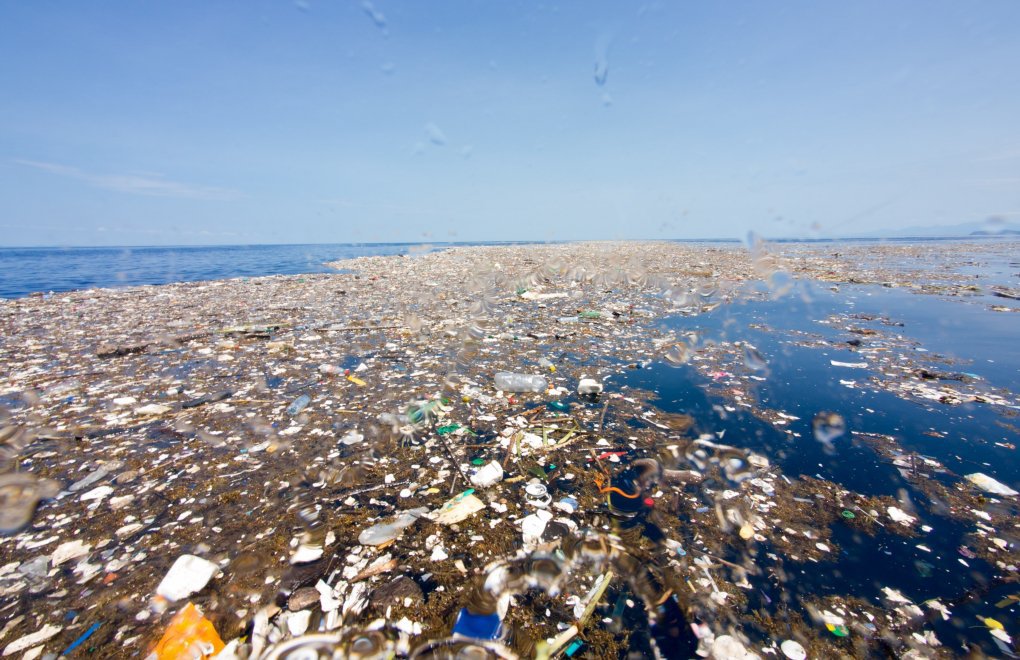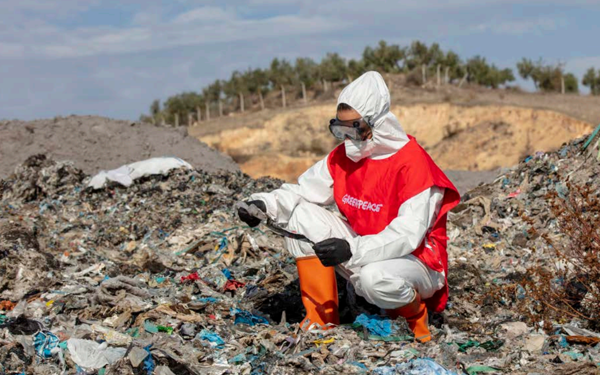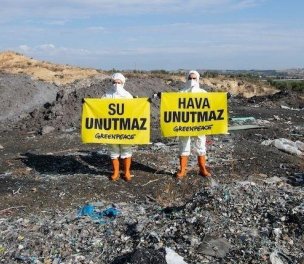* Photo: Caroline Power
Click to read the article in Turkish
Conducted by Ipsos in conjunction with the Plastic Free July, the "Attitudes towards single-use plastic" survey has revealed that "an average of three-quarters of people across 28 countries agree that single-use plastic should be banned as soon as possible."
Among the countries where the online survey was conducted was also Turkey. The results of the survey have been analyzed in cooperation with the World Wide Fund for Nature (WWF).
The study was conducted among 20,513 adults under the age of 75 across 28 countries on Ipsos's Global Advisor online platform.
The countries were Argentina, Australia, Belgium, Canada, France, Germany, Hungary, Italy, Japan, Netherlands, Poland, South Korea, Spain, Sweden, UK, USA, Brazil, Chile, Colombia, Hungary, India, Malaysia, Peru, Poland, Russia, Saudi Arabia, South Africa and Turkey.
CLICK - Plastic waste imported from Europe poisoning Turkey's soil, shows Greenpeace analysis
The survey results have shown that on average, 88 percent of people surveyed across 28 countries believe that it is essential, very important or fairly important to have an international treaty to combat plastic pollution. Latin America (93 percent), BRIC countries (91 percent) and the Middle East/Africa (90 percent) are the regions with the highest levels of agreement.
The five countries with the highest levels of agreement are reportedly Mexico (96 percent), Brazil (95 percent), Colombia (94 percent), and Chile and Peru (both 92 percent). Those with the lowest ones are Japan (70 percent), the US (78 percent) and Canada (79 percent). In Turkey, the rate of support for an international treaty stands at 89 percent.
Ban on single-use plastics
According to the survey results, Latin American and BRIC (Brazil, Russia, India, and China) countries show the highest levels of agreement with banning single-use plastic, at 88 percent and 80 percent, while North America has the lowest levels of agreement at 61 percent.
The highest levels of agreement with banning single-use plastics are seen in Colombia (89 percent), Chile and Mexico (both 88 percent), and Argentina and China (both 84 percent), and the lowest levels in Japan (37 percent), the United States (55 percent) and Canada (66 percent).
Use of as little plastic as possible
Clear majorities of consumers in every country and a global average of 82 percent also agree they prefer products that use as little plastic packaging as possible. Again, Latin America and BRIC countries show the highest levels of agreement at 89 percent and 84 percent respectively. At the country level, China, Mexico, and Colombia top the list with 92 percent agreement, followed by Chile (90 percent) and Peru (87 percent).
Again, Japan is the country with the lowest percentage agreeing (56 percent), followed by the US (71 percent) and the Netherlands (73 percent).
'Manufacturers should take responsibility'
Vast majorities of people in all 28 countries agree that manufacturers and retailers should take responsibility for reducing, reusing, and recycling plastic packaging, with a global average of 85 percent.
According to the survey results, Latin Americans are those most in agreement (89 percent), followed by Europeans. Public opinion in Japan is not as unanimous with only 72 percent agreeing with the statement.
The five countries where support for having manufacturers and retailers take responsibility for reducing, reusing, and recycling plastic packaging is highest are Brazil, China, Great Britain, and Mexico, all at 90 percent, and Sweden at 89 percent, while those least likely to agree were Japan (72 percent), Saudi Arabia and South Korea both at 79 percent. (EMK/SD)






.jpg)


